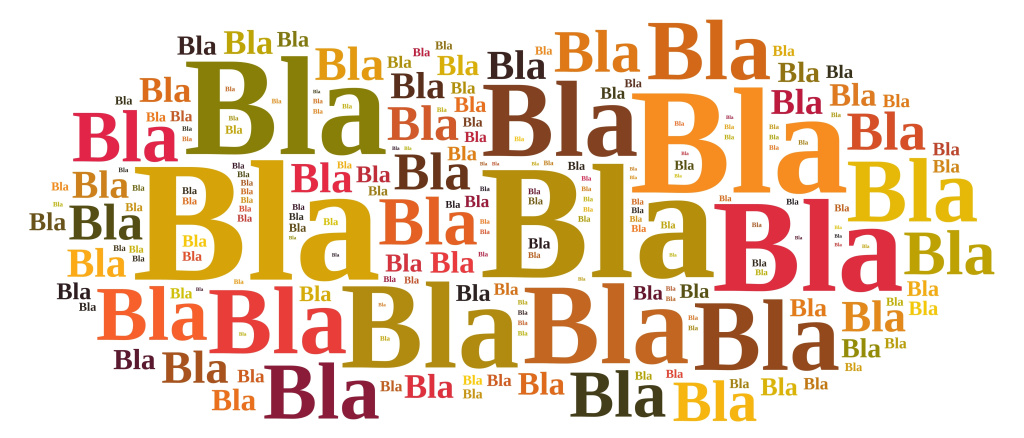We were sent this anonymously and feel obliged to share…an object lesson in how to say everything and do nothing.
| Phrase | Real meaning | When / how it’s useful |
| I’m absolutely committed to this. | I haven’t actually done anything. | When nothing concrete to say. Avoids actually agreeing to any action. Diverts criticism. |
| We are making good progress, but there’s more to do. | We haven’t achieved anywhere near what we said we would and are not likely to. | Bigs up what little we have done. Implies that we will do more without actually saying what or committing to anything. |
| My colleagues in XXXX are working on this | I can pass the buck on this issue | Moves spotlight/ accountability away from me. |
| We are reviewing…. | Work is continuing, but not necessarily with any urgency, direction or purpose. Does not identify who is doing the work. | Buys time. Can be used to deflect potential questions. Good delaying tactic. Looks as though we are doing something. |
| We will publish our review/ response [e.g. to the report] shortly | Holding response. We can take as long as we like since we have not committed to any timescale. The “action” is the review/ report- (i.e. just process) so avoids any real action | Buys time. Implies that no direct action required. Tried and tested- gives impression of doing something. Recommendations (when eventually issued) can be vague and/or list what is in place already without needing to commit further resources. |
| That was so powerful. I was really moved. Thank you so much for sharing it |
I have no defence against that and have no idea what I can do about it | Useful when engaging with individuals or families. Implies empathy without any action needed |
| Its very distressing to hear that | Its nothing to do with me though, so just get on with it | Useful to avoid committing to doing anything about it |
| I’m really interested in what you think we should do | I haven’t got a clue what to do | They have probably told us loads of times already and we’ve ignored it, but it gives the impression we are listening |
| I totally get it | I really don’t understand at all | Gives impression you understand and care |
| (Silence) | This is totally indefensible. | Don’t comment on any scandal/ shocking revelation – otherwise may be drawn into accountability. Use a written statement if pressed so no comeback/ difficult questions |
| I’m happy to meet with you. My officials will arrange a time to meet. It’s really important that I hear directly from you. | This might shut them up for a bit. Suggests / promises further action without actually committing. | Allow shortest time possible for the meeting. Pre-arrange with officials to be “called away on urgent business”. Make good use of all phrases above during meeting |
| There are pockets of good practice | Someone somewhere is doing the right thing, but its rare and often “despite the system” rather than because of it. There’s nothing I can do to ensure that the regions actually do what’s needed rather than what’s expedient. | Diverts attention from missed targets. Suggesting that “we can learn from this” doesn’t actually mean we do anything apart from perhaps write a short case study and put it on a website. If a “pocket” is identified, useful to refer to it constantly in meetings |

